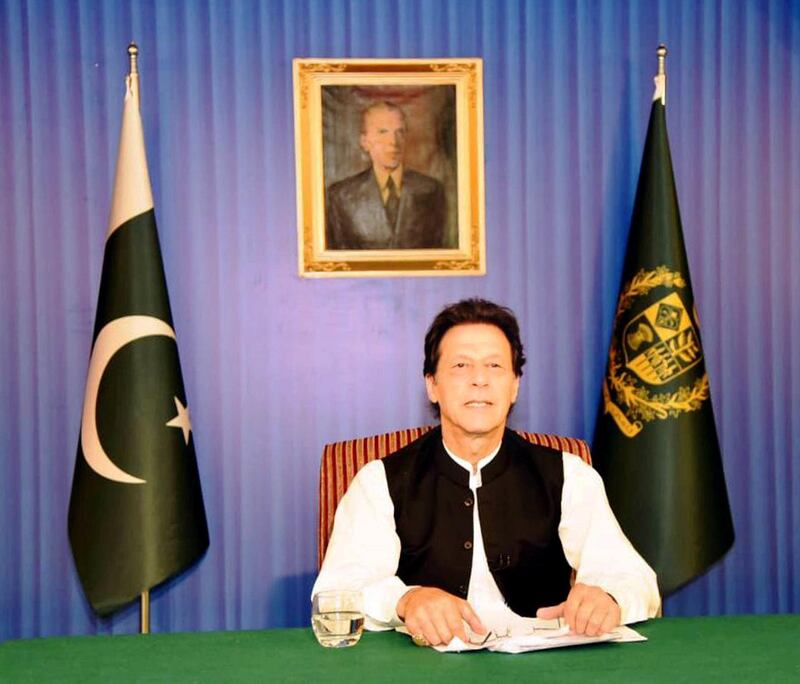Pakistan's Prime Minister Imran Khan plans to have only two servants instead of the 524 normally reserved for a sitting premier and he intends to sell off a fleet of bullet-proof vehicles.
Seeking to plug some of the nation's financial shortfalls, the latter step could be considered bold in a country where Islamist militants still pose a threat.
In his first speech as prime minister on Sunday he called on the rich to start paying taxes and said the country will begin an austerity drive to reduce debt, starting with offloading his office's car fleet.
Mr Khan set out his vision for a "New Pakistan" and spoke at length about the need to reshape the country by introducing an Islamic welfare system, reducing poverty and slashing high debt levels.
"We have formed a bad habit of living on loans and aid from other countries," he said, under a portrait of his hero and Pakistan founder Muhammad Ali Jinnah.
"No country can prosper like this. A country must stand on its own feet."
The 65-year-old former cricket legend was sworn in as prime minister on Saturday after his party swept to power in last month's election.
___________
Read more:
Pakistani MPs elect Imran Khan as new prime minister
[ Is Imran Khan's austere inauguration a harbinger for Pakistan's future? ]
___________
Mr Khan's appeal has soared in recent years on the back of his anti-corruption drive, which has resonated with young voters and the expanding middle class in the mainly-Muslim nation of 208 million people.
But he has inherited a host of problems at home and abroad, including a currency crisis and fraying relations with Pakistan's historic ally, the United States.
Mr Khan did not shed any light on policy plans to deal with the currency woes that analysts expect will force Pakistan to seek another International Monetary Fund (IMF) bailout. Instead, Khan focused on debt and said former central bank governor Ishrat Husain would lead a task-force to drive austerity.
Criticizing what he called the colonial-era mindset and lavish lifestyles of Pakistan's ruling elite, Khan announced he would live in a small three-bedroom house instead of the palatial prime minister's residence.
"I want to tell my people, I will live a simple life, I will save your money," he said.
Khan appealed to overseas Pakistanis to invest in the country and urged the wealthy to start paying taxes, a perennial problem in a nation famous for tax dodging and where less than 1 percent of the population files income tax.
"It is your responsibility to pay taxes," said Khan. "Think of this as a struggle, that you need to pay tax for the betterment of your country."
Khan, who has never held a government position, named his 21-person cabinet over the weekend, opting mostly for experienced politicians.





